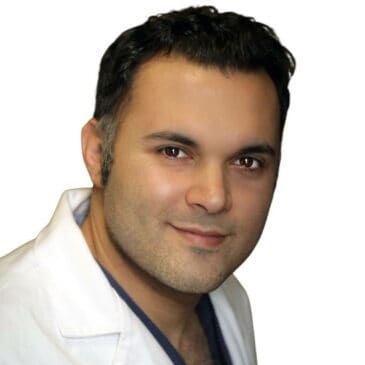Advocating for the use of IV vitamin C for cancer is, to say the least, controversial. There are a lot of bold claims out there, promising anything from a complete cure to “the best” chances at survival. Naturally, the backlash against many of these dangerous promises sometimes lands on the opposite extreme – one that posits vitamin C is completely useless or innocuous.
Yet, we now have several studies that explore the possible uses of high doses of vitamin C within oncology. And as usual, the truth is much more complicated than a simple, single-word answer.

First, a necessary disclaimer
“Cancer” is not a single disease — the term refers to more than 100 different diseases, all characterized by having certain cells growing uncontrollably. Each type of cancer cell has sub-types and unique mutations that will change survival rates or the best treatment course.
And who is the best-qualified person to help you decide which course will give you the best chances? A trusted, board-certified oncologist who has examined you and your tumor cells personally.
Also, do not use vitamin C therapy as your sole cancer treatment. All the studies we will see today have used different doses of vitamin C as a complementary treatment, alongside more established drugs, with varying degrees of success — and we will examine those details later. However, using vitamin C instead of chemotherapy or radiotherapy is a dangerous gamble.
Vitamin C and Cancer: Where does the link come from?
As much as we would love to have a “vitamin that kills cancer” ready to deploy immediately, we first need to understand how the effects of vitamin C affect cancer treatment and why many researchers thought it was worth the research grant money.
What is vitamin C?
Vitamin C, or ascorbic acid, is both an essential nutrient and a strong antioxidant. The body uses vitamin C to create enzymes needed for collagen production, energy absorption, and glucose control. It is also indispensable for wound healing, keeping up your red blood cell levels, preventing bruising or bleeding, and protecting oral health.
As an antioxidant, vitamin C helps protect your cells from oxidative damage, preventing free radicals from causing the kind of DNA damage that sometimes triggers cancer.
Early studies on vitamin C and cancer
The first researcher to notice the possible impact of vitamin C levels on cancer was William McCormick back in 1959. He noticed that cancer patients often had very low levels of vitamin C and had a higher chance of developing scurvy. However, he couldn’t find a specific reason.
It wasn’t until 1972 that surgeon Ewan Cameron and chemist Linus Pauling made the first clinical trials that used high doses of vitamin C as an add-on to cancer therapy. They found that terminally-ill patients who received vitamin C lived, on average, four times as long and had a better quality of life.
Then, in a series of case reports published by Drs. Levine, Padayatty, and Riordan, terminally-ill cancer patients managed to exceed their predicted life expectancy following high-dose intravenous vitamin C infusions.
Purchase Any 4 IV's
Or Injections & Get The 5th Complimentary
Call +1-877-760-3564
Or Click Here to Send Us Email

Why didn’t vitamin C become a mainstream anti-cancer therapy?
Levine’s study had some flaws: it wasn’t a randomized placebo-controlled trial — instead, they compared their results with similar patients who had been treated at their hospital.
During the 1980s, a larger trial done at Mayo Clinic showed vitamin C had no effect on recovery, prevention, or survival rates of cancer patients. Now, this study used smaller doses of vitamin C tablets (like the ones from regular oral supplements) for a much shorter period rather than large “pharmacologic” doses via IV infusion. However, it was enough to hold off the enthusiasm for a couple more decades.
Within the last 10 years, cancer research has revisited many previously-disregarded treatments. A handful of new clinical studies dealing with pancreatic, ovarian, and breast cancer patients, among others, have tried to find the nuance behind initial results.
The final verdict? At high enough concentrations — and in the right circumstances — intravenous vitamin C may not be a miracle — but it does make a difference.
How does vitamin C affect cancer therapy?
Now, it’s time to examine the specific role of vitamin C in the treatment of cancer. For this, we will focus on the effects that have been backed by high-quality studies and where the difference was large enough to be worth the bother.
So far, we’ve found three possible effects:
Lowering chemotherapy side effects
There’s no way around it: chemotherapy is harsh. It can save your life, but it will likely make you feel miserable during the process. Many chemo side effects wear off a few days after each dose, and most go away completely a few weeks after your full treatment is completed — but in the meantime, they can easily wreak havoc on your quality of life.

The best and most solid evidence so far backs using vitamin C megadoses to help manage many chemotherapy side effects. It has proven particularly effective with the following:
- fatigue
- loss of appetite
- insomnia
- nausea
Some researchers believe this happens because ascorbic acid’s antioxidant effects can protect your cells from the toxicity caused by chemo drugs. In addition, it’s likely a vitamin C treatment will also help prevent scurvy. Although rare in modern America, nutritional deficiencies are more frequent among cancer patients, thanks to the combination of frequent vomiting, loss of appetite, and rapid weight loss (cachexia).
Lowering your chances of recurrence or metastasis
Some types of human cancer include special mutations that affect the body’s ability to store natural antioxidants, such as glutathione or NAPD. In turn, the lack of antioxidants is linked to higher cell death and damage and a higher chance of cancer regrowing or metastasizing.
On the other hand, many of these cancer cell lines also seem to be particularly sensitive to the antioxidant action of vitamin C. By adding IV vitamin C infusions to their regular chemotherapy regimens, researchers were able to trigger faster “cell death” of cancer cells, increase overall survival rates, and lower the likelihood of metastasis.
This has been tested so far in patients with non-small cell lung cancer, pancreatic cancer, glioblastoma, and some mutations of colorectal cancer (known as KRAS and BRAF cancers).
Increasing the absorption of other anti-cancer drugs
More recent preclinical trials (that is, they were not done in people but with isolated cells) are also opening new possibilities for therapy. The effects of vitamin C can help stop the proliferation or reproduction of oral squamous cell carcinoma, and they may be cytotoxic (damaging) for melanoma cells.
In addition, high plasma concentrations of ascorbic acid can help the formation of hydrogen peroxide in the interstitial fluid between cancer cells — which can then help medication “penetrate” ovarian cancer cells better, increasing the anticancer effect of standard drugs.
Does vitamin C prevent cancer?
Despite being perhaps the most widely accepted claim of all, vitamin C for cancer prevention also deserves some nuance.
Just like all antioxidants, ascorbic acid can protect normal cells from oxidative stress. In turn, this lowers your chances of developing any non-hormone-dependent cancers. We have large studies showing that regularly consuming large amounts of vitamin C (at least twice the recommended daily intake) could lower your lifelong chances of developing cancer.
The catch? Lowering is not the same as eliminating. Plus, these large-scale, long studies only measure overall risk — but often leave out the other protective factors or risks that affect each individual patient.
For example, people who routinely consume more vitamin C are more likely to eat more fresh fruits and vegetables. A healthy diet also lowers the risk for many types of cancers, and other ingredients in fresh fruits, like fiber, can protect you from specific cancers.
At the end of the day, your chances of developing cancer are affected by a myriad of factors, from lifestyle to genetics to even exposure to pollution. And then there’s always a bit of chance, and nothing produces absolute protection.
Why use IV vitamin C infusions instead of regular supplements?
The final piece of the puzzle requires seeing how and how much vitamin C is effective against cancer.
So far, it seems like whenever we see vitamin C having a big impact on cancer patients, it is usually given intravenously and in large doses. As we’ve mentioned before, just eating regular amounts of food is difficult for a cancer patient — and if you’re looking to combine vitamin C and chemotherapy, it can be difficult to keep your supplements down for long when you’re in the middle of chemo nausea.
But for it to be effective, we need large “pharmacologic concentrations” of vitamin C in a patient’s blood, which go beyond what you can get from a commercial dietary supplement.
Looking for a vitamin C infusion for cancer treatment near L.A.?
Does vitamin C help with cancer? Overall, it can — especially if you are looking to make your treatment more bearable. We have extensive experience offering IV vitamin boosters for cancer patients, and we can help you liaise with your oncologist to find the most appropriate regime for you.
At IV Vitamin Therapy, you can complement your cancer therapy safely, comfortably, and with style. Our elegant and quiet spa-like office in Beverly Hills offers a carefully curated atmosphere where you can relax and recharge even during the hardest of times.
We also offer a concierge house call service for patients who would prefer to receive vitamin infusions in the comfort of their own homes. This is perfect for the days when fatigue hits you hard and leaving your safe nest doesn’t feel like an attractive option. Book now by calling 855-999-5577.
We serve patients near Beverly Hills, Bel Air, West Hollywood, Santa Monica, West Los Angeles, Culver City, Hollywood, Venice, Marina del Rey, Malibu, Manhattan Beach, Redondo Beach, Downtown Los Angeles, Encino, Woodland Hills, Sherman Oaks, Calabasas, Burbank, Glendale, Hidden Hills, Agoura Hills, Northridge, North Hollywood, Topanga, Canoga Park, Reseda, Valley Glen, Chatsworth, West Hills, Winnetka, Universal City, Silverlake, Echo Park, and many more.
Purchase Any 4 IV's
Or Injections & Get The 5th Complimentary
Call +1-877-760-3564
Or Click Here to Send Us Email

References
Chen Q, Espey MG, Sun AY, Lee JH, Krishna MC, Shacter E, et al. Ascorbate in pharmacologic concentrations selectively generates ascorbate radical and hydrogen peroxide in extracellular fluid in vivo. Proc Natl Acad Sci U S A. (2007) 104:8749–54. doi: 10.1073/pnas.0702854104
Hoffer LJ, Levine M, Assouline S, et al. Phase I clinical trial of i.v. ascorbic acid in advanced malignancy. Ann Oncol. Nov 2008;19(11):1969-1974.

